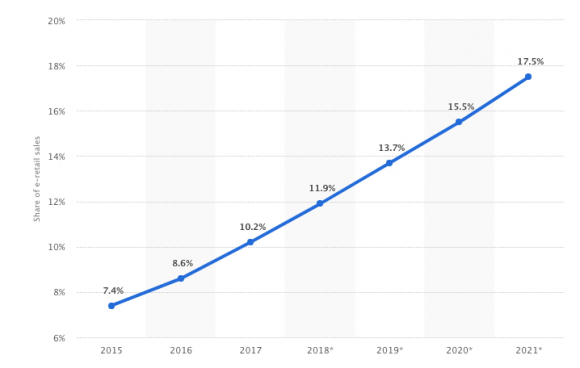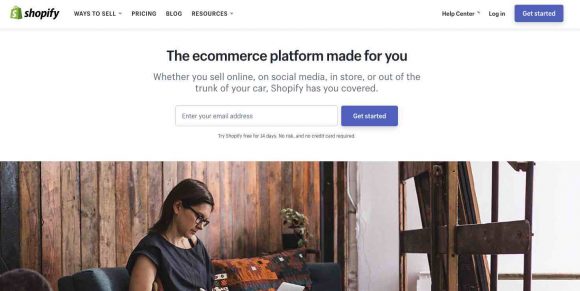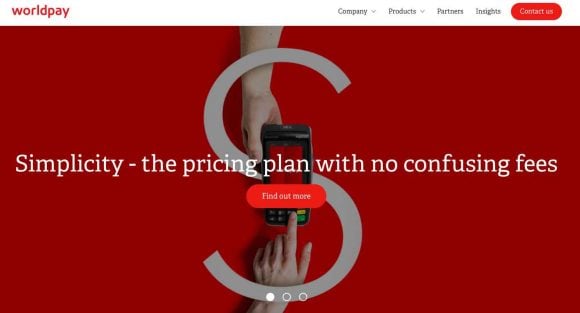PayPal? Shopify? Worldpay? Which Offers the Best Payment Processing for Your eCommerce Store?

Consumer behaviour is changing. According to Statista, eCommerce’s share of total global retail sales in 2017 was 10.2%, and that figure is set to rise to 17.5% in 2021.
With this in mind, and with eCommerce platforms becoming increasingly easy to use, it would seem that the door is open for new merchants to profit on market change.
Hence, whether you’re looking to turn your blog into an eCommerce store, open a brand-new online shop or discover new, untapped ways to maximise your profit and save on processing fees, this post is something you’d want to consider.
This article will look at the solutions offered by PayPal, Shopify, and Worldpay to help you decide which platform offers the best payment processing for your eCommerce store.
[bctt tweet=”PayPal? Shopify? Worldpay? Which Offers the Best Payment Processing for Your eCommerce Store?” username=”blogherald”]PayPal
PayPal is the original convenient payment processor, and it continues to thrive because of its assurance of secure transactions.
It is commonplace for eCommerce stores to offer two main payment options: pay by card, or pay via PayPal. Some smaller stores accept payment exclusively via PayPal. This is mainly due to its ease-of-use, simple integration, global recognition and reputation.
Set up is straightforward on major eCommerce platforms such as Magento, Shopify, and WooCommerce. Merchants will need a PayPal business account to be able to accept payments, and will then just need to activate the service on their CMS backend, usually by using an addon or plugin.
Most Unique and Friendliest CMS for Small Businesses
For merchants who are able to add custom HTML to their websites, PayPal also offers a direct integration option which they call PayPal Buttons.
Some of the different buttons available include, Buy Now, Donate, Subscribe, and Automatic Billing.
A common use case of PayPal Buttons is to facilitate an immediate on-page sale, where shopping cart and checkout functionality are not required. The major eCommerce platforms also offer a number of plugins and apps which replicate this functionality.
However, you’d want to keep in mind that PayPal puts limits on new, unverified accounts. This means that if you’re planning on selling large quantities, you would be advised to go through the process of lifting your limit before your store is live and running.
Shopify
Shopify has arguably become the biggest name among eCommerce platforms in recent years. It enables merchants to set up their own online store quickly and easily, and without the need for a developer.
For new merchants, Shopify offers a similar set up to website builders such as Wix and Squarespace, where there is a choice of customisable themes, and a choice of add-on applications to enhance functionality.
Use of Shopify starts with a free 14-day trial. To continue use, there is a monthly price. This starts at $29 for Basic Shopify, $79 for Shopify, and $299 for Advanced Shopify.
Merchants with new Shopify accounts can navigate to Shopify Payments, where they will be able to set up payment processing with Stripe and PayPal by default. As noted, a PayPal business account will be required, as will a free Stripe account.
Shopify also integrates with over 100 other payment processors, some of which may provide worthwhile functionality. Such as Amazon Payments, which provides customers with the convenience of checking out using their Amazon credentials.
Another standout feature of Shopify is the range of apps it offers merchants to help sell products and grow their store, as demonstrated by the Places to Sell section of their app store. Apps like Facebook Channel, Instagram Channel, and Buy Button Channel, make it easy to advertise and display products across social media and the web, to attract new customers.
Finally, Shopify is not only used by startups. Big brands such as Penguin Books, Tesla Motors, and Red Bull, also use the platform.
Worldpay
Worldpay is an established payment processor that offers tailored payment solutions for businesses.
Features of their Online Payment Gateway include:
- Advanced fraud protection
- Support for all major credit and debit cards plus PayPal
- Fraud screening designed to protect merchants and customers
- Access to simple online reporting tools
- Invoice management
- Recurring payments, and more.
Because offering tailored payment solutions appear to be part of Worldpay’s ethos, their website doesn’t display a pricing plan or provide access to automated use of their service. Instead, it encourages direct contact with company representatives, to discuss the best solution for your business.
Worldpay is certainly popular and effective though. They process 10,000 card transactions per minute, are trusted by 300,000 businesses worldwide and have a 4-star Feefo rating.
An upside to Worldpay’s service is that you’re able to consult with an established payment processor to ensure that you implement payments in a way that is optimal for your business’ needs.
With continuing growth and innovation in eCommerce, it can be difficult to know if your store is on the right path. With either PayPal, Shopify, or Worldpay, you will be in safe hands. As we have seen, depending on your needs, you may be able to make use of one or more of them.





